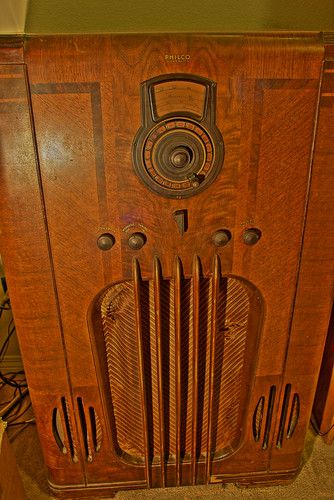 |
| Source: Flickr (CC - KN6KS) |
Is history the telling of a story, a narrative?
Narrative: "A spoken or written account of connected events" (Oxford Dictionaries)
What's the difference between the above two definitions?
If we see history as narrative, we might start to think of characters (people) in a story, the plot of the story (the cause-effect of connected events), yes?
In the case of our study of media history, the characters in our story will inventors of media technologies and key media scholars. In some ways, we may also see some media technologies as characters in our story.
***
What is the difference between "The History of Something" and "A History of Something"?
Example: "A History of Communication Study" by Everett Rogers
The "A" suggests a recognition of a limited perspective. How so?
Historiography: "The study of historical writing" (Oxford Dictionaries).
Or put another way, it is the study of the study of history.
So, in short, there may be limitations or weaknesses in any history told or written.
Can we fix that? How?
***
And, now an especially important question to ask as we embark on a study of media history.
Why study the history of media or any history for that matter?*
- To satisfy our curiosity.
- To gain an appreciation for the work done and the progress made.
- To show a little respect for those who came before us.
- To gain a sense of identity with a community.
- To learn from the past to help understand the future.
*Source: Based on Hart, 1999.
Share this post with others. See the Twitter, Facebook and other buttons below.
Please follow, add, friend or subscribe to help support this blog.
See more about me at my web site WilliamHartPhD.com.

No comments:
Post a Comment
Thank you for your comment.
Your comment will be reviewed.
If acceptable, it will be posted after it is carefully reviewed. The review process may take a few minutes or maybe a day or two.